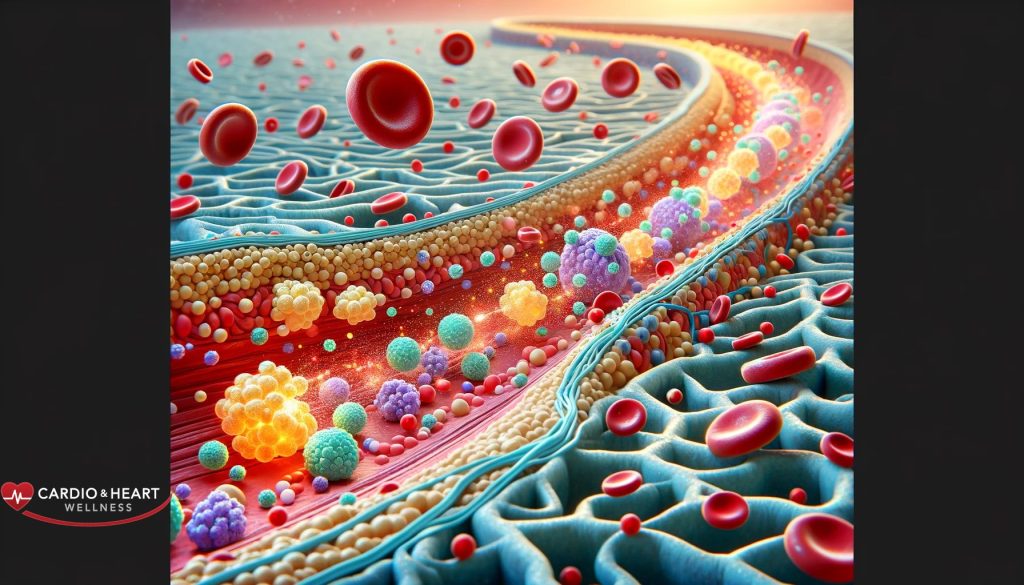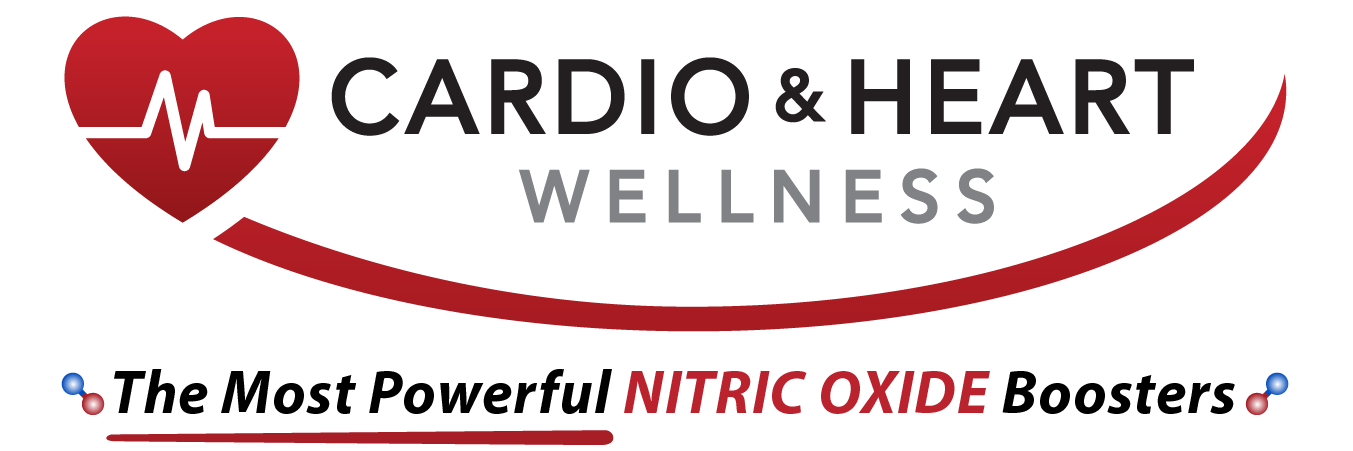The Importance of Vasodilation in Cardiovascular Health
Vasodilation, the expansion of blood vessels, plays a crucial role in maintaining cardiovascular health. When blood vessels dilate, it allows for increased blood flow and oxygen delivery to various organs and tissues throughout the body. This process is essential for optimal functioning of the cardiovascular system.
By promoting blood vessel relaxation, vasodilation helps regulate blood pressure and ensures that vital organs receive an adequate supply of oxygen and nutrients. It also facilitates the removal of waste products from tissues. Without proper vasodilation, there can be restricted blood flow, leading to complications such as hypertension or reduced organ function.
Understanding the significance of vasodilation and its impact on overall cardiovascular health is key to maintaining a healthy circulatory system.

Understanding Nitric Oxide as a Signaling Molecule
Nitric oxide (NO) is a vital signaling molecule in the body that has diverse physiological functions. It is produced by various cells, including endothelial cells, and plays a crucial role in maintaining cardiovascular health.
What is Nitric Oxide?
Nitric oxide, also known as endothelium-derived relaxing factor (EDRF), is a small gas molecule that acts as a signaling messenger in the body. It is synthesized from the amino acid L-arginine by enzymes called nitric oxide synthases (NOS). Once produced, NO diffuses rapidly across cell membranes and exerts its effects on nearby cells.
Role of Nitric Oxide in Vasodilation
One of the key roles of nitric oxide is promoting the relaxation of blood vessels, a process known as vasodilation. When NO is released by endothelial cells lining the blood vessels, it diffuses into smooth muscle cells within the vessel walls. There, it stimulates the production of cyclic guanosine monophosphate (cGMP), which leads to relaxation and expansion of the blood vessels.
This vasodilatory effect helps regulate blood pressure by reducing resistance to blood flow. By dilating blood vessels, nitric oxide improves vascular health and increases oxygen and nutrient delivery to tissues throughout the body. It also prevents excessive constriction of blood vessels, which can lead to conditions like hypertension.
Impact of Nitric Oxide on Cardiovascular Health
Nitric oxide (NO) plays a significant role in maintaining cardiovascular health by regulating blood pressure and improving endothelial function.
Regulation of Blood Pressure
Nitric oxide helps maintain optimal blood pressure levels by promoting vasodilation, the relaxation of blood vessels. When NO is released by endothelial cells, it signals the surrounding smooth muscle cells to relax, resulting in the expansion of blood vessels. This dilation reduces resistance to blood flow and prevents excessive constriction of the vessels. By regulating blood vessel tone, nitric oxide contributes to stable and healthy blood pressure levels.
Improving Endothelial Function
Nitric oxide supports the health and function of endothelial cells, which line the inner walls of blood vessels. These cells play a crucial role in maintaining proper vascular function. NO enhances endothelial cell function by promoting vasodilation, reducing inflammation, and preventing platelet aggregation or clot formation. By enhancing blood flow and preventing clotting, nitric oxide contributes to overall heart health and circulatory system well-being.
The impact of nitric oxide on cardiovascular health is multifaceted, encompassing its role in regulating blood pressure and supporting endothelial function. Understanding these effects can help us appreciate the importance of maintaining adequate levels of NO for optimal cardiovascular well-being.
Mechanisms of Nitric Oxide Production and Endothelial Function
Understanding the mechanisms of nitric oxide (NO) production and its role in endothelial function is crucial for comprehending its impact on cardiovascular health.
Production of Nitric Oxide
Nitric oxide is primarily synthesized by endothelial cells, which line the inner walls of blood vessels. These specialized cells contain an enzyme called nitric oxide synthase (NOS), which facilitates the conversion of L-arginine, an amino acid, into nitric oxide. This enzymatic process leads to the release of NO into the surrounding vascular environment.
Endothelial Function and Nitric Oxide
Endothelial cells play a vital role in maintaining vascular health and homeostasis. They release nitric oxide as a signaling molecule to regulate vascular tone, or the degree of constriction or relaxation of blood vessels. The presence of NO causes smooth muscle cells within the vessel walls to relax, leading to vasodilation and improved blood flow.
A deficiency in nitric oxide can lead to endothelial dysfunction, characterized by impaired endothelium-derived relaxing factor (EDRF) production. This dysfunction can disrupt normal vascular function, contributing to conditions such as hypertension, atherosclerosis, and impaired blood flow regulation.
Understanding the intricate relationship between nitric oxide production and endothelial function provides insights into how these mechanisms influence cardiovascular health.
Therapeutic Applications and Emerging Research
The therapeutic potential of nitric oxide (NO) in treating cardiovascular diseases is an area of active exploration. Researchers are investigating its efficacy in managing conditions such as hypertension and atherosclerosis.
Therapeutic Potential of Nitric Oxide
Nitric oxide-based therapies hold promise for cardiovascular diseases. By leveraging the vasodilatory properties of NO, researchers aim to develop treatments that can effectively regulate blood pressure and improve vascular health. These therapies may involve the administration of exogenous nitric oxide or drugs that enhance endogenous NO production.
Conditions like hypertension, characterized by elevated blood pressure, can benefit from nitric oxide-based interventions. By promoting vasodilation, NO helps reduce resistance to blood flow and lower blood pressure levels. Similarly, atherosclerosis, a condition marked by the buildup of plaque in arteries, may be targeted with NO-based therapies to improve blood vessel function and prevent further progression.
Emerging Research in Nitric Oxide
Ongoing studies continue to uncover new insights into the role of nitric oxide in cardiovascular health. Researchers are investigating various aspects, including the impact of NO on endothelial function, platelet aggregation, inflammation, and oxidative stress. Understanding these mechanisms can lead to innovative approaches for managing heart conditions and vascular disorders.
Emerging research also explores novel therapeutic strategies that harness the potential of nitric oxide. This includes exploring new drug delivery systems or developing compounds that target specific pathways involved in NO production or signaling.
As research progresses, the therapeutic applications of nitric oxide are expected to expand further, offering new possibilities for improving cardiovascular outcomes.
Recapitulating the Importance of Nitric Oxide in Cardiovascular Health
In conclusion, nitric oxide (NO) plays a vital role in maintaining cardiovascular health. Its impact on vasodilation and endothelial function is crucial for overall heart health and circulatory system well-being. By promoting blood vessel relaxation and regulating blood pressure, NO ensures optimal blood flow and nutrient delivery to organs and tissues throughout the body.
Understanding the significance of nitric oxide in cardiovascular health provides insights into potential therapeutic applications for managing heart conditions and vascular disorders. Ongoing research continues to uncover new insights into NO’s mechanisms of action, paving the way for innovative approaches to improve cardiovascular outcomes.
Overall, nitric oxide stands as a key player in maintaining a healthy cardiovascular system, highlighting its importance in supporting heart health and overall well-being.


